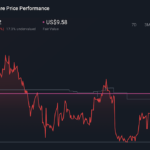Over the last five years, Nvidia stock is up a staggering 2,500%. That means a $10,000 investment in Nvidia stock made five years ago would now be worth nearly $260,000.
Yet the fact of the matter is that a lot of investors may have missed out on Nvidia’s rise, or at least a significant portion of it, simply because they missed the early signs of a multibagger in the making. With that in mind, let’s have a look at another stock — one that might still be in the early innings of a multiyear uptrend: SoundHound AI (SOUN 23.70%).

Image source: Getty Images.
SoundHound AI is a leader in a fast-growing field
To understand why SoundHound AI is such a great under-the-radar choice, you need to understand what the company does. SoundHound is a leader in the field of voice artificial intelligence (AI) — the process of converting human speech into digital commands and data that AI models can use.
As you might imagine, this field is of growing importance, as the number of AI models is surging. Organizations large and small are increasingly adopting AI models to streamline their operations or enhance the appeal of their products to consumers.
For example, voice-activated technology is becoming the standard on most new automobiles, as consumers increasingly expect to use voice commands to navigate, place calls, send texts, or get information while driving. Similarly, restaurants, particularly those in the fast-food or fast-casual segment, are ramping up their use of voice-activated ordering kiosks as a way to cut costs and improve order accuracy.
Therefore, it’s no surprise that SoundHound has targeted both industries. It boasts numerous clients across both sectors, including Honda, Hyundai, Five Guys, and Firehouse Subs.
Why SoundHound AI could be the next big thing in AI
While it’s true that SoundHound is a leading player in an up-and-coming segment of the AI market, that alone isn’t enough to make it the next big thing in AI. After all, the giants of the industry (Apple, Amazon, and Alphabet) are also focused on the AI voice market.
However, SoundHound may have a couple of key competitive advantages over its big-tech rivals. First, the company differs from its deep-pocketed competitors in this key respect — it’s happy to help brands develop their own “voices.”
SoundHound means this both figuratively and literally. The company notes that voice assistants are crucial to consumers’ impressions of a brand because humans tend to anthropomorphize (assign human characteristics) to voice assistants.
Case in point: Would you want the voice assistant in your car to sound male or female? Young or old? Serious or funny? SoundHound, which hasn’t created an iconic voice AI, like Siri or Alexa, can work with clients to help them develop the voice that best suits their needs.
The second opportunity for SoundHound is that its big-tech rivals may choose to gobble up this upstart, rather than compete with it. As of this writing, SoundHound’s market cap is $3.7 billion. For the tech heavyweights, that’s pocket change.
To sum up, SoundHound is well-positioned to capitalize on the AI boom. As more and more organizations seek out ways to use voice AI to cut costs, SoundHound’s stock could grow significantly in value.
Moreover, investors shouldn’t rule out a potential acquisition, given the company’s modest market cap. In any event, investors looking for an up-and-coming name in the AI field should consider SoundHound AI.
John Mackey, former CEO of Whole Foods Market, an Amazon subsidiary, is a member of The Motley Fool’s board of directors. Suzanne Frey, an executive at Alphabet, is a member of The Motley Fool’s board of directors. Jake Lerch has positions in Alphabet, Amazon, and Nvidia. The Motley Fool has positions in and recommends Alphabet, Amazon, Apple, and Nvidia. The Motley Fool has a disclosure policy.








